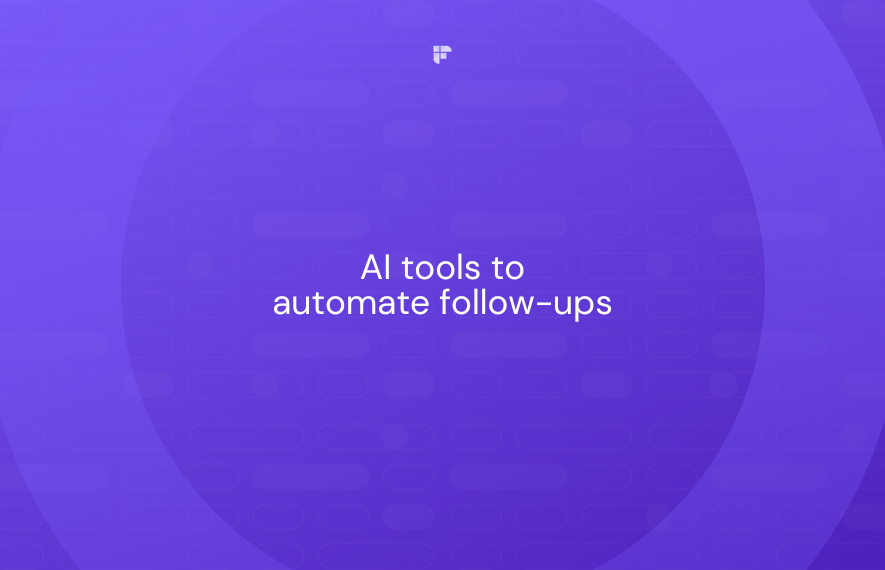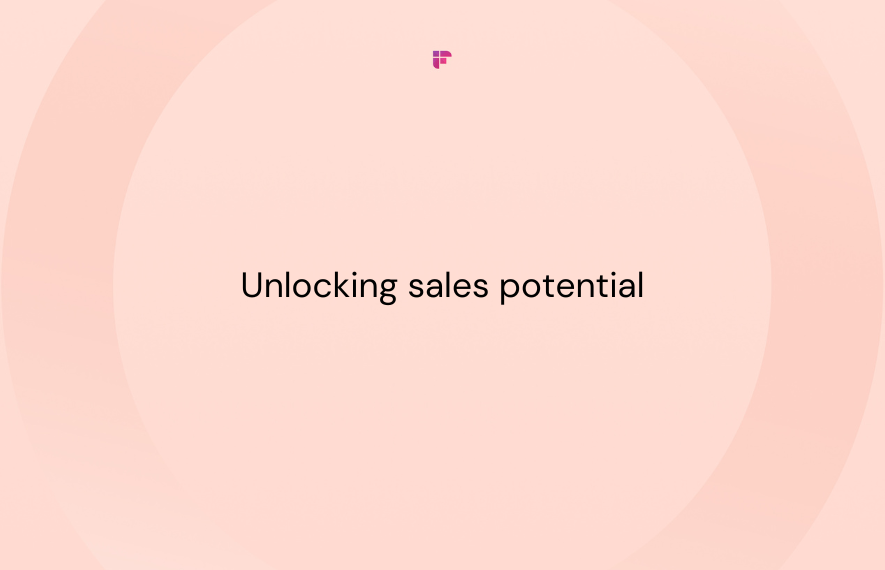The integration of generative AI in sales might seem unconventional, given the field's emphasis on human interaction.
However, this groundbreaking technology is not just a buzzword; it’s a practical tool that is reshaping how sellers engage with buyers and drive revenue.
As we know, the sales process involves a lot of customer interactions, generating a ton of data from call recordings, messages, and meeting videos. Generative AI excels at sorting out all this information to offer better solutions.

Generative AI for sales can help us analyze, understand, and connect with the audiences to deliver personalized services. This is the main reason why businesses have started using AI-powered sales tools.
In this article, we'll discuss generative AI further, exploring seven practical applications within the sales domain.
What is generative AI?

Generative AI is a subset of deep learning that enables machines to create new data or content, such as images, videos, music, or even 3D models, without human intervention.
Unlike traditional AI models, which are task-specific, generative AI has the unique capability to generate novel, contextually relevant outputs without explicit programming.
In simple words, generative AI involves training AI models to understand different patterns and structures within existing data and using that to generate new original data.
An example of generative AI is OpenAI's GPT models, like GPT-4. Trained on extensive data, they can generate human-like text in response to prompts. This versatility enables applications in content creation, translation, and code generation, showcasing the broad potential of generative AI.
Generative AI for sales and lead generation

Generative AI transforms sales by leveraging algorithms to analyze vast customer interaction data, constituting about 90% of business information.
Contrary to the perception that sales heavily rely on human interaction, generative AI proves invaluable in sorting through unstructured data types like text from emails, audio from phone calls, and video from face-to-face encounters.
This technology refines the sales process by extracting meaningful insights and patterns, enabling sales reps to close deals in a time-efficient manner.
Here are some statistics and facts to showcase the use of generative AI for sales:

- A majority, or 70%, of companies incorporating AI into their operations claim that its adoption has boosted marketing and sales revenue.
- Companies using AI in sales report up to a 50% increase in leads, a 70% reduction in call time, and a 60% cost reduction.
- In the next five years, Gartner predicts that 60% of the tasks done by sellers will be handled by generative AI technologies, a substantial increase from less than 5% in 2023.
- Twilio introduced RFP Genie, a generative AI tool that uses OpenAI's GPT-4 to create responses by scanning internal files for relevant information in a Request for Proposal (RFP).
- Google anticipates that its AI Request for Proposal (RFP) tool will save its sales team tens of thousands of hours each year.
7 Use cases of generative AI for sales and lead generation

Here are the 7 ways you can use generative AI for sales lead generation:
1. Sales automation

Generative AI for sales lead generation offers a significant advantage by automating repetitive tasks. Sales professionals frequently invest considerable time creating proposals, email templates, and other sales materials.
Generative AI swiftly and efficiently generates these materials, liberating valuable time for salespeople to concentrate on other facets of their role, such as cultivating client relationships.
A sales happiness index survey shows that sales reps dedicate 41% of their workday to non-revenue-generating tasks like internal meetings, emails, prospect research, manual cold email composition, CRM updates, and scheduling.
Interestingly, the survey reveals that 81% of sales reps believe they could meet their quotas and generate 38% more revenue for the company with reduced administrative time.
2. Generating content for sales materials

AI-generated sales content is versatile, aiding various content marketing initiatives like - SEO-optimized blog posts, case studies, whitepapers, and social media updates.
Producing high-quality, scalable content enables sales teams to attract, engage, and nurture potential customers across the sales funnel.
Utilizing generative AI tools like ChatGPT facilitates the creation of sales enablement materials, including brochures, sales scripts, and sales playbooks.
3. Customer segmentation

Generative AI efficiently analyzes extensive customer data to recognize patterns and categorize customers into specific segments based on their behaviors, preferences, and needs.
With insights into these customer segments, sales teams can devise customized strategies tailored to each group. They can also create messaging and offers that align precisely with the characteristics of each segment, ultimately enhancing the overall effectiveness of sales efforts.
4. Integrating with CRM systems

CRM systems often store a wealth of information, including customer interactions, social media comments, support tickets, and email communications. However, much of this data is unstructured, posing a challenge for traditional analytics tools to extract valuable insights.
Generative AI, using natural language processing (NLP) and machine learning algorithms, can analyze this unstructured data to reveal sentiment, trends, and customer needs.
For example, analyzing such data can unveil common customer pain points, allowing businesses to address concerns and enhance overall customer satisfaction proactively.
Salesforce, the leading CRM provider, launched Einstein GPT, marking the introduction of the first-ever generative AI CRM solution. This innovative tool delivers AI-generated content across all interactions in sales, service, marketing, and beyond.
5. Personalized sales emails

Generative AI can shape personalized email and messaging templates by analyzing customers' past interactions, preferences, and interests.
Leveraging natural language processing (NLP) and natural language generation (NLG) technologies, AI crafts compelling and relevant content. This resonates with prospects, leading to increased open and response rates, along with enhanced conversion rates.
Research by Salesloft revealed that incorporating 20% personalization in outbound sales emails led to over a 40% increase in open rates. Moreover, it also doubled the reply rates from 3.1% to 6.6%.
Manual personalization is time-consuming, but generative AI for sales lead generations helps to save time. Sales teams utilize AI personalization to boost conversions and closings by sending personalized emails based on contact history and sentiment.
Microsoft's Viva Sales integrates GPT into its CRM, automating tasks such as responding to customer emails.
6. Taking notes from sales calls

Jotting down notes from sales calls can be tedious for salespeople who prefer engaging with leads. Generative AI tools offer a solution by connecting to and transcribing sales calls and automatically generating notes and action steps.
According to a survey, 38% of sales professionals already leverage AI to summarize sales calls. Fireflies is an AI-powered note taker that seamlessly integrates with CRMs, functioning like a virtual assistant to automatically input notes and action steps.
7. Sales feedback and training

Generative AI tools can extract call insights, providing both generalized and individualized feedback. They analyze large datasets to uncover common objections and best practices.
Additionally, these tools create individualized sales coaching materials for reps, offering interactive training simulations to help them navigate various scenarios.
Fireflies.ai - Best generative AI tool for sales teams

Fireflies.ai is a powerful tool designed to enhance sales teams’ productivity. It acts as an AI note-taker, streamlining the sales process by automating critical tasks.
Here’s how it works:
1. Automate sales calls

Fireflies.ai automates sales calls by integrating with your CRM. It records, transcribes, summarize, analyze, and logs meeting notes into the CRM, eliminating manual note-taking and data entry. This ensures accurate records, allowing sales teams to focus on meaningful client interactions and closing deals efficiently.
2. Onboard sales reps faster

Fireflies accelerates sales rep onboarding by leveraging insights from successful sales calls. Create and share short audio clips of key moments from sales conversations or organize them into a playlist for new reps.
New reps efficiently learn from top-performing interactions, streamlining the onboarding process and uncovering effective deal-closing strategies.
3. Integration with CRM and collaboration apps

Fireflies seamlessly integrate with CRM and collaboration tools like Salesforce, HubSpot, Slack, Zapier, and more. It records meeting notes, transcripts, and recordings directly within these platforms, enhancing sales team collaboration and streamlining processes.Here's how Fireflies can help you:
- Automatic logging of sales notes, transcripts, and recordings in CRM apps (Salesforce, HubSpot, Freshsales, Pipedrive)
- Analyze sales trends and prospect sentiment with conversation intelligence metrics
- Annotate sales transcripts for feedback and coaching
- Transcription support for 60+ languages and 3 English accents
- Create and share Soundbites of important sales discussions
- Fully customizable meeting summaries to extract meeting intel that matters the most
- ChatGPT-powered chatbot, AskFred, to understand what transpired in meetings and create content
- Create an automated knowledge base for all sales calls
- Custom Topic Trackers to monitor key phrases discussed during meetings
- Develop data-backed sales playbooks



You can use Fireflies for FREE or explore its budget-friendly premium plans, beginning at just $10/user per month.

💡 Automate your sales process with Fireflies!
ESupercharge your sales efficiency with Fireflies.ai. Say goodbye to manual note-taking and hello to seamless automation. Elevate your team's productivity with Fireflies today!

![7 Ways Generative AI Will Assist Sales and Lead Generation [2024]](/blog/content/images/size/w2000/2023/12/Copy-of-Meeting-etiquette-rules-all-professionals-must-follow--80-.png)






